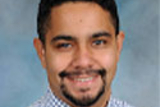Pediatric Emergency Medicine Fellowship
Overview and mission
Thank you for your interest in the Pediatric Emergency Medicine (PEM) fellowship at The Children’s Hospital of Philadelphia (CHOP). This fellowship was one of the first in the nation and has been training leaders in PEM for more than 35 years. Our mission is to provide you with the experiences, education, support and guidance that will allow you to achieve your highest potential as a clinician, educator and researcher. Our faculty is committed to your training and there is a robust clinical and research mentoring program in place.
The fellowship program is based within the Emergency Department (ED) at CHOP, a Level 1 Pediatric Trauma Center that provides care to more than 100,000 children each year. In addition, there are experiences in the pediatric ED of a community hospital (Virtua) in NJ, CHOP’s Poison Control Center, and adult medicine rotations in the University of Pennsylvania Health System. We currently have 15 fellows in our program. We anticipate having positions for five fellows annually: four in PEM and one for the combined PEM fellowship with Global Health (GH) track.
Program snapshot
Fellowship Program Directors
Pamela Fazzio, MD
Archana Verma, MD
Program Coordinator
Krista Bright
kbright@chop.edu
Faculty: More than 50 full- and part-time attendings, board certified in PEM, jointly appointed by the University of Pennsylvania and Children’s Hospital of Philadelphia
Number of fellows: 15
Candidates are accepted upon completion of training in ABP- or ABEM-approved programs in either Pediatrics or Emergency Medicine. Unfortunately, we can’t accept applicants with J-1 Visas or those from residencies that are not ACGME approved.
Duration: Three years for PEM and four years for PEM/GH
Application deadline: August 31, application via Electronic Residency Application Service (ERAS)
Interviews: September and October
Special programs:
- A combined PEM fellowship with Global Health track, led by Keri Cohn, MD. In this four-year program, candidates complete requirements for the PEM fellowship and are eligible for both the PEM board exam and the CTropMed® examination. Global health experience and research are integrated throughout the four years. In addition to standard PEM training, individuals will acquire skills in:
- Clinical emergency tropical medicine (both at home and abroad)
- Academic work relating to global medicine
- A Diploma in Tropical Medicine and Hygiene
- For those who have already completed a PEM fellowship, we offer a one-year Emergency Bedside Ultrasound Fellowship led by Rachel Rempell, MD.
Applicants may apply to either the three-year PEM program or the four-year PEM/GH program or both through ERAS.
About CHOP
The history, expertise and compassion that make Children’s Hospital of Philadelphia unique are also what makes it the best place for medical trainees.
The nation’s first pediatric hospital, CHOP has been providing exceptional healthcare for children since 1855. The Hospital’s mission is to advance pediatric healthcare worldwide through:
- Excellence in patient care
- Breakthrough research to cure pediatric diseases
- Education for future generations of medical professionals
- Advocacy for children’s health
CHOP is consistently ranked at the top in U.S. News & World Report’s survey of pediatric hospitals, which uses measures such as outcomes, research, patient-staff ratio and safety to evaluate a hospital’s quality. The Department of Pediatrics at CHOP is consistently recognized as one of the nation’s foremost departments of pediatrics in U.S. News & World Report’s survey of U.S. medical schools.
Diversity and inclusion
Our division of Emergency Medicine values diversity among our staff at all levels including diversity of race, ethnicity, sexual preference and gender identification. At both the hospital and divisional levels, there are many initiatives that a fellow may participate in including:
- The Division of Emergency Medicine’s Diversity, Equity, and Inclusion Committee
- CHOP’s Multicultural Physician Alliance (MPA): The MPA facilitates faculty-trainee mentorship opportunities, conducts workshops on career advancement, and hosts the Visiting Clerkship Program for URiM medical students.
- U Penn Alliance of Minority Physicians (AMP): The mission of AMP is to develop leaders in clinical, academic, and community medicine through recruitment, career development, mentorship, and social engagement aimed toward URiM clinicians.
Initiatives through the Department of Pediatrics at CHOP include:
- Focusing on recruitment of URiM trainees for both residency and fellowship programs
- Grand Rounds topics on diversity, equity, and inclusion
- Implicit bias training for all physicians
- Development of the Department of Pediatrics Diversity, Equity and Anti-racism curriculum
Curriculum overview
First year overview
The focus during your first year of training is to expand your knowledge and clinical skills in the care of patients in the ED. You will supervise pediatric, emergency medicine, family medicine, and psychiatry residents and advanced practice providers in managing acutely ill or injured children under the direct supervision of a PEM attending physician. Other opportunities include developing your procedure and sedation skills, learning bedside ultrasound, simulation, teaching at resident conferences, and joining a quality improvement committee.
First year curriculum and rotations
Each year of the fellowship contains 13 four-week blocks. There are four weeks of vacation time per year. The first year includes experiences in:
- Pediatric emergency medicine, including shifts in a community hospital pediatric ED (six blocks)
- Adult emergency medicine
- Trauma
- Anesthesiology
- Critical care
- Child abuse
- Bedside ultrasound
- Research
Fellows trained in emergency medicine will have rotations in the NICU and subspecialty clinics in place of rotations in adult ED, adult trauma and bedside ultrasound.
Second year overview
During the second year of fellowship, you will continue to refine clinical, teaching and administrative skills and begin to develop a research project that will serve as your “scholarly activity” required by the American Board of Pediatrics.
You will be given progressive responsibility for patient care as you advance through the program. This will include opportunities to lead sign-out rounds, lead resuscitations, and serve as medical command physician for medical transports, all with direct attending physician supervision. By the last month of the second year, you will have the opportunity to serve as the attending physician in the CHOP ED.
Second year curriculum and rotations
The second year includes 13 four-week blocks, including:
- Pediatric emergency medicine, including shifts in a community hospital pediatric ED (six blocks)
- Elective/research (two blocks)
- Transport medicine
- Anesthesiology
- Toxicology
- Adult emergency medicine
- Sports medicine
Third year overview and curriculum
During the third year, in the clinical realm you will transition to being the attending physician on your ED shifts. In that capacity, you will supervise trainees and be responsible for the management of the patients on your “team” within the ED. At all times, there will be at least one other ED attending physically present in the ED to assist you should the need arise. You will work approximately six to seven shifts per block in the CHOP ED. This will allow you to make significant progress with your academic project and allow those who are pursuing a master’s degree ample time to complete coursework.
A goal of this final year of training is to complete patient enrollment or chart review and present your academic work at a national society meeting. Also, there are continued opportunities to teach this year, including developing teaching sessions at CHOP CE courses.
Educational opportunities
Throughout fellowship there is a focus on developing your skills as a teacher and on creating an educational “portfolio.” Fellows and attending physicians co-facilitate our weekly, monthly and annual teaching conferences. Our ED conference curriculum involves focus on both clinical care and research conferences. As a fellow, you are protected from clinical duties on Wednesdays in order to be present for teaching and education.
Our divisional teaching conferences encompass a broad array of topics:
- Clinical case conferences
- Morbidity and mortality
- Fellows-only simulations
- Point of care ultrasound
- Research in progress conferences
- Research within our division conferences
- Division simulation
- Resuscitation review
- Trauma reviews
- Toxicology grand rounds
- Transport conference
- Joint ED-ICU conference
Starting in your second year, if you are interested, you will have the opportunity to pursue a master’s degree in your chosen field at the University of Pennsylvania. Previous PEM fellows have pursued degrees in fields as diverse as clinical epidemiology, public health, health policy research and human anthropology. For those who don’t pursue a master’s degree, individual courses in biostatistics, epidemiology, and database management are offered that lead to a certificate in the Clinical Research Certificate Program. This program, which is designed primarily for School of Medicine residents, fellows and faculty, is offered through the Center for Clinical Epidemiology and Biostatistics of the University of Pennsylvania. Other fellows have chosen to earn a certificate in Healthcare Quality Improvement & Patient Safety.
In addition to the above listed teaching opportunities, all fellows will have the opportunity to participate in annual teaching conferences within our division:
- The resident suture and splint workshops
- Intern Resuscitation Day
- Annual CHOP ED CE conference
- Advanced Practice Provider airway skills training
Each of the following experiences are paid for by the PEM program:
- First-year fellows attend Base Camp, a multidisciplinary, simulation-based workshop held in New York
- Fellows in the first and second years also attend the annual National PEM Fellows’ conference
- All fellows will be provided training in Advanced Cardiac Life Support (ACLS), Advanced Trauma Life Support (ATLS), and Pediatric Advanced Life Support (PALS)
Mentorship
Soon after starting fellowship, you will be paired with both a clinical and research mentor, who will remain your mentors throughout your fellowship. These mentors, who are faculty within the Division of Emergency Medicine, are dedicated to assisting you in achieving your goals.
Your clinical mentor will:
- Assist you in acquiring and mastering clinical, procedural and teaching skills
- Be available to preview/edit your lecture or case conference material
- Help foster clinical questions to direct your research interests
- Facilitate your ability to achieve work/life balance
- Share with you areas for improvement and offer formative feedback
- Serve as a role model for your career development
Your research mentor will:
- Assist you in identifying an important clinical question and designing a research project to address that question
- Guide you in every phase of the project including IRB submission, data collection and analysis, and writing a manuscript
- Assist you in preparing to present initial research ideas or results at the annual National PEM Fellows’ Conference or at a national society meeting
Research opportunities
Research within the Division of Emergency Medicine (DoEM)
The PEM fellowship will assist and prepare fellows to acquire and develop skills in research methodology, quality improvement, and critical evaluation of the medical literature. Highlights include:
- The DoEM is a member of:
- Pediatric Emergency Care Applied Research Network (PECARN): A multicenter network whose goal is to conduct rigorous multi-institutional research into the prevention and management of acute illnesses and injuries in children.
- Pediatric Emergency Medicine Collaborative Research Network (PEM CRC): Subcommittee of the AAP Section on Emergency Medicine. Its goal is to support and facilitate the development of useful and rigorous collaborative research in PEM.
- Pediatric Emergency Research Networks (PERN): Comprised of over 100 hospitals with 2 million pediatric ED visits per year, with hospitals from seven international networks.
- A divisional research team of five dedicated research coordinators who manage 20 academic associates; these coordinators and associates assist with enrolling patients in studies
- Monthly divisional research seminars
- Research mentorship from a specific member of the division
- Crognale Award: $3,000 per fellow for sponsored project, from divisional funds
Research within CHOP
CHOP’s Research Institute unifies all research activities at the hospital. It is comprised of nine Centers of Emphasis and 16 multidisciplinary Research Affinity Groups. One or more DoEM faculty are members of several of these Centers of Emphasis.
CHOP Centers of Emphasis
Resources within each center include research coordinators, biostatistical support, grant writing support, and dissemination of information through social and traditional media. The centers are:
- Center for Injury Research and Prevention
- Center for Pediatric Clinical Effectiveness
- PolicyLab: Aims to achieve optimal child health and well-being by informing program and policy changes through interdisciplinary research
- Center for Applied Genomics
- Center for Autism Research
- Center for Cellular and Molecular Therapeutics
- Center for Childhood Cancer Research
- Center for Clinical Pharmacology
- Center for Mitochondrial and Epigenomic Medicine
Current fellows
Fourth-year fellows

Lauren Palladino
Fourth Year Global Health Fellow
Residency
Yale New Haven Children's Hospital
Medical school
Jacobs School of Medicine and Biomedical Sciences at the University at Buffalo

Casey Pitts
Fourth Year Combined PEM/Informatics Fellow
Residency
Children's Hospital of Philadelphia
Medical school
Albert Einstein College of Medicine

Jasmine Umana
Fourth Year Research Fellow
Residency
University of Chicago
Medical school
University of Chicago Division of the Biological Sciences The Pritzker School of Medicine
Third-year fellows

Priyanka Joshi
Residency
Children's Hospital of Philadelphia Pediatrics Residency Program
Medical school
George Washington University School of Medicine and Health Sciences

Jessica Kelly
Residency
Brown University/Hasbro Children's Hospital
Medical school
University of Massachusetts

Christopher Miller
Residency
McGaw Medical Center of Northwestern University
Medical school
Emory University of Medicine

Tyler Rainer
Residency
Boston Combined Residency Program
Medical school
Lewis Katz School of Medicine at Temple University

Maria Quidgley-Martin
Residency
Children's Hospital of Philadelphia
Medical school
University of Pittsburgh School of Medicine
Second-year fellows

Brittany Guttadauria
Residency
Children's Hospital of Philadelphia
Medical school
Donald & Barbara Zucker School of Medicine at Hofstra/Northwell

Keven Cabrera
Residency
Children's Hospital at Montefiore
Medical school
Donald & Barbara Zucker School of Medicine at Hofstra/Northwell

Erin Sieke
Residency
Children's Hospital of Philadelphia
Medical school
Cleveland Clinic Lerner College of Medicine

Beverly Aiyanyor
Residency
Boston Combined Residency Program - Urban Health and Advocacy Track (Boston Children's Hospital and Boston Medical Center)
Medical school
Northwestern University Feinberg School of Medicine

Polina Krass
Residency
Children's Hospital of Philadelphia
Medical school
Medical School New York University School of Medicine
First-year fellows

Angela Amaniampong
Residency
Indiana University – Riley Children's Hospital
Medical school
Michigan State University College of Osteopathic Medicine

Emily Berner
Residency
Children's Hospital of Philadelphia
Medical school
University of Massachusetts

Kate Donches
Residency
Children's Hospital of Philadelphia
Medical school
Temple University

Shenel Heisler
Residency
Children's Hospital at Montefiore
Medical school
Philadelphia College of Osteopathic Medicine

Lauren Klingensmith
Residency
Children's Hospital of Philadelphia
Medical school
Albert Einstein College of Medicine
How to apply
Our three-year fellowship seeks physicians who will have completed three years of training in an accredited residency program in pediatrics or emergency medicine. Our fellowship program participates in the National Resident Matching Program and the ERAS universal application process. We will not accept fellows outside of the NRMP and can’t accept candidates with J-type VISAs.
For an application and to upload documents, please visit the AAMC ERAS web site.
Program requirements
- Completed online application
- Current photograph (released only after interview is offered)
- Personal statement
- Three letters of recommendation
- Dean's letter
- Medical school transcript
- Parts 1, 2 and 3 of the USMLE, taken within the seven-year time frame as required by the Commonwealth of Pennsylvania, or equivalent scores
- If a graduate of a medical school outside the United States, Canada or Puerto Rico, valid ECFMG certificate or one that does not expire prior to the start of the fellowship
Deadline for applications
The deadline for completed applications is August 31. The fellowship directors will review completed applications, and selected candidates will be invited to interview during the months of September and October.
Other requirements
To carry out its mission, it is of critical importance for the Children’s Hospital of Philadelphia (CHOP) to keep our patients, families and workforce safe and healthy and to support the health of our global community. In keeping with this, CHOP has mandated all workforce members (including trainees) on site at any CHOP location for any portion of their time be vaccinated for COVID-19 as a condition of employment.
This mandate also applies to workforce members or trainees performing work for CHOP at non-CHOP locations. Additionally, all workforce members based in or regularly scheduled to work at any New Jersey location are mandated to be both vaccinated and boosted for COVID-19, with booster timing consistent with applicable guidelines. The CHOP COVID-19 vaccine mandate is in alignment with applicable local, state and federal mandates. CHOP also requires all workforce members and trainees who work in patient care buildings or who provide patient care to receive an annual influenza vaccine. Employees may request exemption consideration for CHOP vaccine requirements for valid religious and medical reasons. Please note start dates may be delayed until candidates are fully immunized or valid exemption requests are reviewed. In addition, candidates other than those in positions with regularly scheduled hours in New Jersey, must attest to not using tobacco products.
Children's Hospital of Philadelphia is an equal opportunity employer. We do not discriminate on the basis of race, color, gender, gender identity, sexual orientation, age, religion, national or ethnic origin, disability, protected veteran status or any other protected category. CHOP is a VEVRAA Federal Contractor seeking priority referrals for protected veterans.
CHOP is committed to building an inclusive culture where employees feel a sense of belonging, connection, and community within their workplace. We are a team dedicated to fostering an environment that allows for all to be their authentic selves. We are focused on attracting, cultivating, and retaining diverse talent who can help us deliver on our mission to be a world leader in the advancement of healthcare for children.
We strongly encourage all candidates of diverse backgrounds and lived experiences to apply.
More information
For information or questions about the Pediatric Emergency Medicine Fellowship, please contact Krista Bright at brightk@chop.edu.
If interested in an elective rotation at our institution please contact Ashley Shemonsky CLEMASA@chop.edu and Dr. Eva Delgado DelgadoE2@chop.edu.